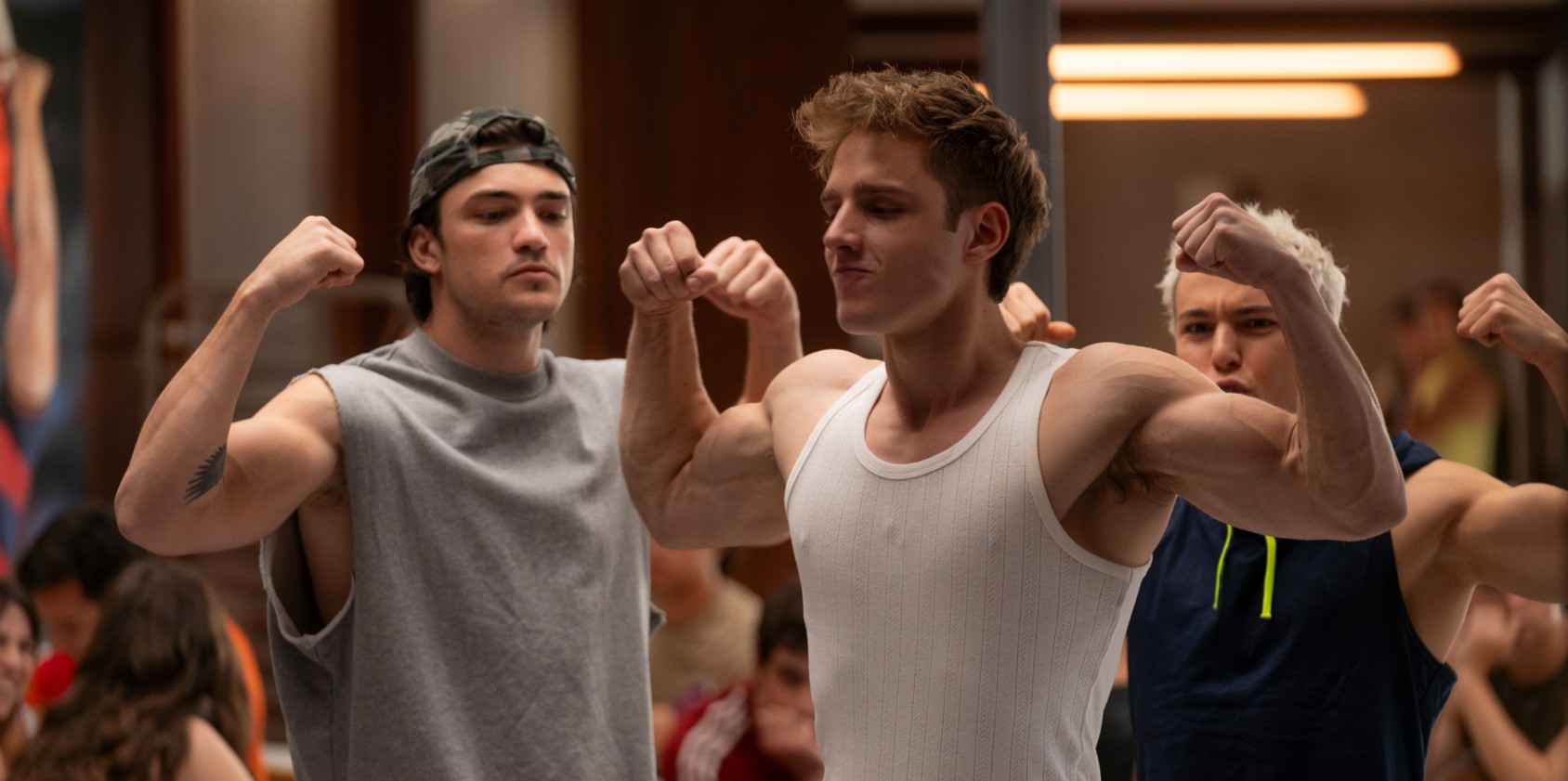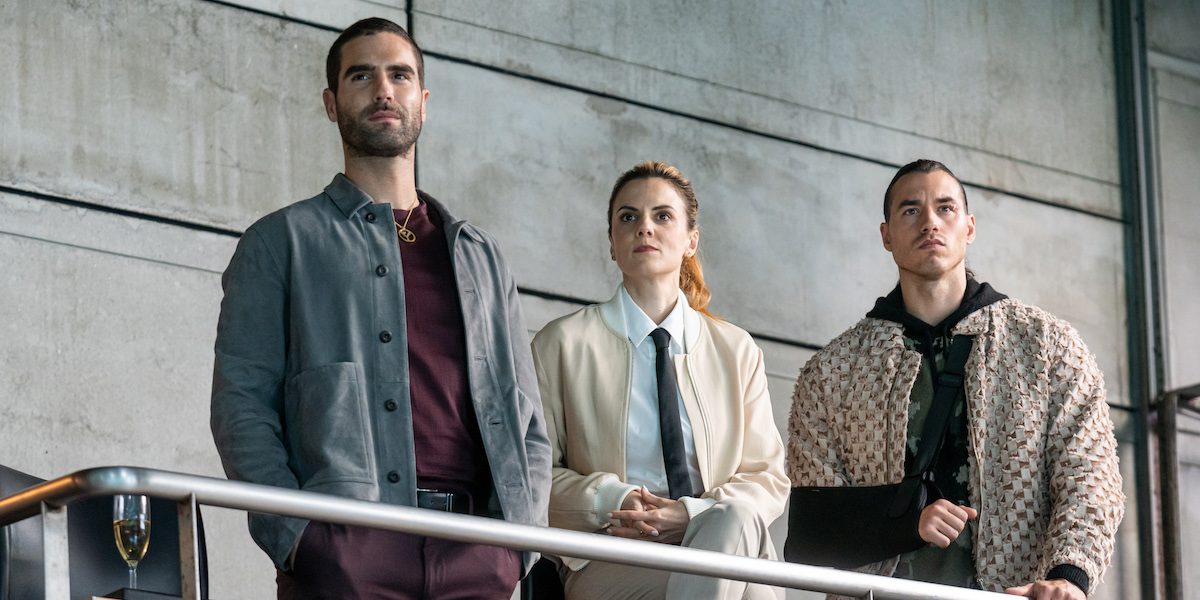At the beginning of ‘Olympo,’ the young athletes at HPC Pyrenees remark that no one reaches the Olympics without a sponsorship. In such a competitive space, Olympo, the sports apparel and scouting company, enters the arena like a siren, wooing those pursuing greater heights and promising them the means to do so. As everyone eyes the top spot, the competition turns stiff, with contenders ruthlessly trampling those who can’t catch up with the fervor. By the time some athletes realize that there are darker plans at play, they are too late. The world of sports turns into a battleground where victory is decided by how much one can sacrifice. As everyone dances to Olympo’s tune, those pulling the strings sit back and enjoy the show. SPOILERS AHEAD.
Olympo is a Fictional Company With a Dark Secret
Olympo is a fictional company created by writers Ibai Abad, Laia Foguet, Alba Lucío, and Jan Matheu to serve as the show’s primary antagonistic force. Over the course of the narrative, the company doubles as a facility that produces a new, untraceable performance-enhancement drug for its sponsees. While Olympo does not resemble any real-life businesses, it is possibly inspired by successful sports companies that also work as a scouting and sponsorship agency. One name that pops up in such conversations is Joma Sport, a sportswear brand that sponsors and provides apparel for the Spanish Olympic Team. While Joma certainly has the size and prestige that Olympo boasts, it has no controversies surrounding its operations or how it treats its sportspersons, thus making it unlikely to be the main creative source behind the fictional company.

While there are other real-life sports brands that stand as a match for Olympo’s power and influence, such as Adidas and Lululemon, the word Olympo is also used as the name of a number of fashion brands that appear on social media. These include a Mini Sneaker store based in Spain and an apparel company. A slight change in the spelling of Olympo, such as Olimpo or Olymp, reveals a host of other fashion outlets, all of which sell products ranging from sandals to gymnastics vests. While these may have served as potential inspirations behind the sports giant, they are smaller in scale businesswise, which separates them as entities from the fictional company at the show’s center. Conversely, the name’s overlap with so many brands reinforces the power it carries due to its immediate psychological connection to the Olympics, which is widely considered the pinnacle of sports.
Olympo Pushes its Athletes to Their Limits
While there is no real-life equivalent to a company-run doping scandal, Olympo’s hold on various power structures, which allow it to manipulate the situation from behind the screen, is reminiscent of institutional doping programs, such as East Germany’s sports campaign in the 1970s and ’80s. The government decided to dose its athletes with performance-enhancing drugs, most notably steroids, believing that their sports wins would demonstrate the superiority of their political systems. Reportedly, athletes quickly began to notice changes to their bodies, yet had little choice but to go along in an authoritarian system. Some swimmers even equate their lives with the pills, seeing no alternative. While this is similar to how Olympo deprives its sportspersons of agency, the latter is notably an illegal operation, thus making the government an unlikely inspiration.

Olympo’s practices don’t just harm the integrity of the sports industry but also endanger the athletes. Their experiential drug has several untold adverse side effects, from organ failure to the body’s pain receptors shutting down. Hugo and others’ obsession with pushing the athletes past their limits comes with a complete disregard for the value of human life. This is best displayed by their emotional and physical abuse of Amaia and Nuria. The whole operation highlights the potential tragedies that occur in the sports industry every day, where people’s ambitions are exploited by the greedy, leaving nothing but ruined lives in their dust. However, despite its narrative prominence and stark commentary, Olympo remains a fictional creation that cannot be found in the real world.
Read More: Olympo Ending Explained: Did Amaia Take Olympo’s Drugs?


